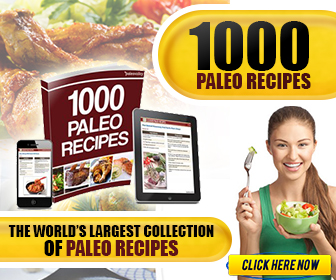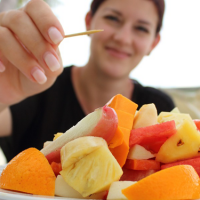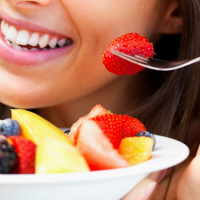Eating Healthy During Pregnancy for a Healthy Mom and Baby
Eating healthy during pregnancy is not just about satisfying your cravings; it’s about providing essential nutrients to support the growth and development of your baby. A balanced diet helps reduce the risk of complications, promotes a healthy birth weight, and supports your overall well-being.
This guide explores everything you need to know about pregnancy nutrition, from the key nutrients required to practical tips for maintaining a wholesome diet. Let’s dive in!
Key Nutrients Needed During Pregnancy
The Role of Folic Acid
Folic acid is a must-have nutrient during pregnancy. It helps prevent neural tube defects in the developing baby, such as spina bifida. Experts recommend consuming at least 400 micrograms daily, which can be found in fortified cereals, leafy greens, and prenatal vitamins.
Why Iron is Essential
Iron supports the production of hemoglobin, ensuring both mom and baby receive enough oxygen. During pregnancy, your body’s need for iron doubles, so include iron-rich foods like lean meats, spinach, and beans in your diet.
Calcium for Strong Bones and Teeth
Calcium helps build your baby’s bones, teeth, heart, and nerves. Aim for 1,000 milligrams per day through sources like milk, yogurt, cheese, and fortified plant-based alternatives.
Foods to Include in Your Pregnancy Diet
Fresh Fruits and Vegetables
Fruits and veggies are packed with vitamins, minerals, and fiber. Opt for a colorful variety to ensure you’re getting a mix of nutrients. Great choices include oranges, berries, carrots, and broccoli.
Lean Proteins and Whole Grains
Proteins are the building blocks of cells, essential for the baby’s growth. Incorporate chicken, fish, tofu, and beans into your meals. Whole grains like oatmeal, brown rice, and quinoa provide energy and essential nutrients.
Healthy Fats and Dairy Products
Healthy fats, such as those in avocados, nuts, and olive oil, are vital for your baby’s brain development. Don’t forget dairy products for their rich calcium content.
Foods and Drinks to Avoid During Pregnancy
High-Mercury Fish
Fish like swordfish, shark, and king mackerel contain high mercury levels, which can harm your baby’s developing nervous system. Stick to safer options like salmon and sardines.
Caffeine and Alcohol
Excessive caffeine can lead to low birth weight and preterm birth. Limit your intake to 200 milligrams daily. Alcohol should be avoided entirely, as it poses serious risks to fetal development.
Processed and Junk Foods
Processed foods are often high in salt, sugar, and unhealthy fats. Instead, focus on whole, nutrient-rich foods to support a healthy pregnancy.
Managing Common Pregnancy Symptoms Through Diet
Dealing with Morning Sickness
Small, frequent meals can help combat nausea. Ginger tea, crackers, and bland foods are often easier to tolerate.
Combating Fatigue with Energy-Boosting Foods
Feeling tired? Foods like bananas, nuts, and whole grains can provide a quick energy boost.
Preventing Constipation and Heartburn
Fiber-rich foods, such as whole grains and fruits, can prevent constipation. To avoid heartburn, eat smaller meals and avoid lying down immediately after eating.
Practical Tips for Healthy Eating During Pregnancy
Meal Planning and Prep
Plan your meals in advance to ensure a balanced diet. Batch-cooking healthy meals can save time and reduce stress.
Hydration Tips for Moms-to-Be
Staying hydrated is crucial for your body and baby. Aim for 8-10 glasses of water daily and consider herbal teas or infused water for variety.
Portion Control and Healthy Snacking
Practice portion control to avoid overeating. Keep healthy snacks like nuts, yogurt, and fresh fruits on hand to curb hunger between meals.
FAQs
1. Can I eat seafood during pregnancy?
Yes, but choose low-mercury options like salmon, cod, and shrimp. Limit your intake to 2-3 servings per week.
2. How much weight should I gain during pregnancy?
Weight gain depends on your pre-pregnancy BMI. On average, women gain 25-35 pounds during pregnancy. Consult your doctor for personalized advice.
3. Is it safe to drink coffee while pregnant?
Moderate coffee consumption (up to 200 milligrams of caffeine daily) is generally considered safe. Always check with your healthcare provider.
4. What foods help with morning sickness?
Ginger, crackers, and bland foods are often helpful. Eating small, frequent meals can also ease nausea.
5. Should I take prenatal vitamins?
Yes, prenatal vitamins are essential for meeting nutrient needs, especially folic acid, iron, and calcium.
6. Can I eat spicy food during pregnancy?
Spicy foods are safe for most pregnant women, but they may exacerbate heartburn. Listen to your body and adjust accordingly.
Eating Healthy During Pregnancy Conclusion
Eating healthy during pregnancy lays the foundation for your baby’s development and your own well-being. By focusing on nutrient-rich foods, avoiding harmful substances, and managing symptoms through diet, you can ensure a smoother, healthier pregnancy journey.










